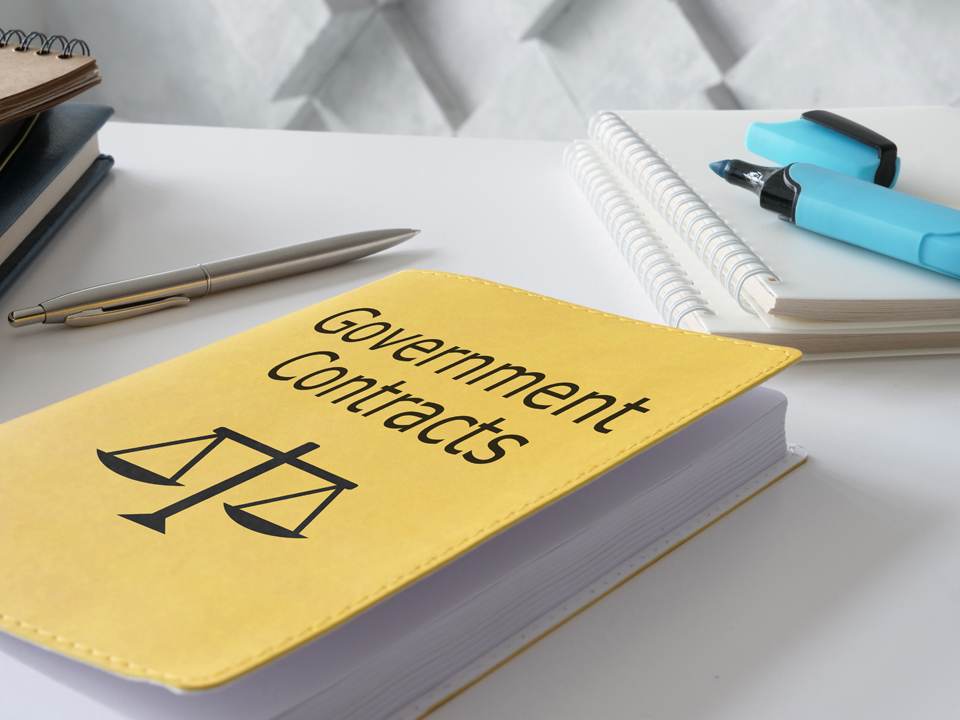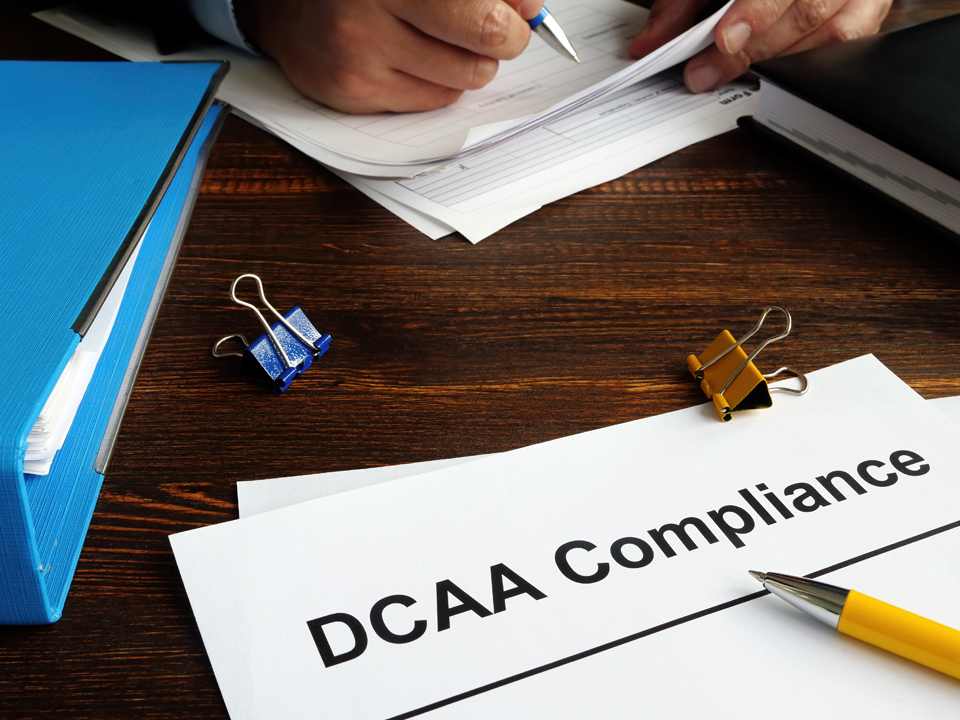
Government contracts law is the body of law that governs the formation and performance of contracts between the government and private parties. It includes both federal and state laws, as well as regulations promulgated by executive branch agencies. Government contracts law covers various topics, including procurement, contracting, dispute resolution, and compliance. The federal government is the largest purchaser of goods and services globally, and government contracts are a significant source of revenue for many businesses.
The United States Constitution allows the federal government to "regulate commerce with foreign nations, and among the several states." This power is known as the Commerce Clause and forms the basis for much of the federal government's authority to enter into contracts. The Constitution also allows the federal government to "spend money for the general welfare." This power, known as the Spending Clause, allows Congress to appropriate funds to purchase goods and services. In addition to the constitutional basis for its contracting authority, the federal government has also enacted statutes that govern the formation and performance of government contracts.
The Federal Acquisition Regulation (FAR) is the primary statute governing federal procurement. The FAR is a comprehensive set of regulations promulgated by the executive branch that governs all aspects of federal contracting, from solicitation to award to performance. The FAR is supplemented by agency-specific regulations, known as agency acquisition regulations (AARs). AARs are promulgated by executive branch agencies to supplement the FAR and provide additional guidance on procurement within the agency's mission. For example, the Department of Defense has its own set of AARs, known as the Defense Federal Acquisition Regulation Supplement (DFARS), which provides guidance on procurement specific to the Department of Defense. In addition to the FAR and AARs, a number of statutes govern specific aspects of government contracting, such as the Competition in Contracting Act (CICA) and the Truth in Negotiations Act (TINA). Government contracts law is a complex and ever-changing area of law. It is important for government contractors that contract with the government to be familiar with the relevant laws and regulations and the federal agencies responsible for enforcing them. Violations of government contracting laws can result in severe penalties, including debarment from future contracting opportunities.
What Are Government Contracts Explain?
Government contracts are agreements between a government entity and a private company or individual. These contracts typically involve providing goods or services to the government in exchange for payment. Government contracts can be awarded through a competitive bidding process, or they may be negotiated directly with a particular company.Government contracts are often used to procure goods and services essential to the government's functioning. For example, defense contracts are used to purchase military equipment and supplies, while construction contracts are used to build or renovate government buildings. Government contracts can also be used to hire private companies to provide services that the government itself does not have the capacity to provide, such as waste management or security.
Government contracts are subject to several regulations, including the Federal Acquisition Regulations (FAR), which govern how federal contracts are awarded and managed. State and local governments may have their own set of rules and regulations governing government contracts.
A number of benefits can be gained from entering into a government contract. For private companies, government contracts can provide a stable source of revenue and help grow and expand the business. Government contracts can also help to ensure that essential goods and services are provided to the government in a timely and cost-effective manner.
However, there are also some risks associated with government contracting. The bidding process can be complex and time-consuming, and there is always the possibility that a contract will not be awarded. In addition, government contracts are subject to several regulations, which can be difficult to comply with. Finally, government contracts typically involve large sums of money, which can be a financial risk for private companies.
Overall, government contracting can be a beneficial way for private companies to provide goods and services to the government. However, weighing the risks and benefits before entering into a government contract is important.
Where Can I Find Local Government Contracts?
If you are looking for local government contracts, your state or city's website is the best place to start. Many states and cities have databases that list current and upcoming bids for projects. You can also check with your local chamber of commerce or business association. They may have information on government contracting opportunities in your area. Finally, you can contact your state or city's purchasing office directly. They can provide you with information on how to get started bidding on government contracts.What Type Of Government Contracts Are Available?

Many types of government contracts are available for businesses, ranging from small-scale projects to large-scale initiatives. The type of contract that a business is eligible for will depend on the size and scope of the project, as well as the company's experience and capabilities.
Some of the most common types of government contracts include:
- Procurement Contracts: These are the most common type of government contract, and they involve purchasing goods or services.
- Construction Contracts: These contracts are for projects that involve constructing new buildings or renovating existing ones.
- Consulting Contracts: Companies may be hired to provide advice or expertise to government agencies on various topics.
- Maintenance Contracts: These contracts cover the ongoing maintenance and repair of government buildings or infrastructure.
- IT Contracts: These contracts are for the provision of computer hardware, software, or other IT services.
It is important to note that the state and federal government contracting process is highly competitive, and businesses must submit their best proposal to win a contract. However, the potential rewards of winning a government contract can be significant, so it is worth pursuing companies that are a good fit.
What Makes A Good Government Contract Lawyer?
There are many qualities that make a good government contract lawyer. The ability to read and understand complex legal documents is essential, as is the ability to negotiate on behalf of clients. Government contract lawyers must also be able to work well with other lawyers and government officials, as they will often be required to collaborate on cases. In addition, good public speaking and writing skills are also important, as government contract lawyers may be required to give presentations or draft legal documents. Finally, good research skills are also essential, as government contract lawyers must be able to find relevant laws and case precedents that can help their clients win their cases.Is Government Lawyer Better Than Private Lawyer?
The answer to this question is not a simple one. It depends on many factors, including the specific situation and the specific needs of the individual. There are pros and cons to both government contracts lawyers and private lawyers, and it is important to weigh all of these before making a decision.Some people may feel that government lawyers are better because they work for the government and are therefore more likely to be unbiased. However, private lawyers may be just as unbiased, and in some cases, they may even be more experienced. It depends on the individual case and the client's specific needs.
Another factor to consider is cost. Government lawyers are usually less expensive than private lawyers, but this is not always the case. It is important to get quotes from both types of lawyers before deciding.
Ultimately, the best decision is the one that is best for the specific situation and needs of the individual. There is no right or wrong answer regarding government lawyers versus private lawyers. It all depends on the case and the client.
What Do We Call A Government Lawyer?
There are many different types of lawyers, each with their own area of expertise. But what do we call a lawyer who works for the government?A government lawyer is also known as a public interest lawyer. These lawyers work for the federal, state, or local government, and their job is to represent the interests of the public.
Public interest lawyers typically work on cases that involve environmental law, consumer protection, civil rights, and other areas of the law that impact the community at large. They may also work on cases that involve government regulation or policy.
Government lawyers are often employed by agencies such as the Department of Justice, the Environmental Protection Agency, or the Federal Trade Commission. They may also work for Congress, state legislatures, or local governments.
If you are interested in becoming a government lawyer, you must have excellent academic credentials and a strong commitment to public service. You should also be prepared to work long hours and handle a high volume of work.
What Do We Call A Government Contract Lawyer?

A government contract lawyer is someone who specializes in advising clients on complying with federal contracting regulations. They may work for a specific federal agency, such as the DCAA, or they may work in private practice.
Government contract lawyers help ensure that federal contractors follow all of the rules and regulations associated with federal contracting. Without these lawyers, it would be very easy for contractors to cut corners and violate the law.
If you are a contractor who is interested in bidding on a federal contract, it is highly advisable to consult with a government contract lawyer before doing so. This will help ensure that you comply with all the necessary regulations and have a solid understanding of the process.
What Are The Disadvantages Of Being A Government Lawyer?
The main disadvantage of being a government lawyer is the pay. Government lawyers are paid significantly less than lawyers in the private sector. This can be a major downside, especially if you have significant student loans to repay.Another disadvantage of being a government lawyer is the hours. Government lawyers often have to work long hours, including nights and weekends. This can be a difficult lifestyle to maintain, especially if you have a family.
Finally, government lawyers may face political pressure from elected officials. This pressure can sometimes result in unethical or illegal behavior. If this happens, it can damage the lawyer's reputation and career.
Are Lawyers Paid By The Government?

There is a common misconception that lawyers are paid by the government. This is not true. Lawyers are paid by their clients through private retainers or public funding. The majority of lawyers in private practice are retained by individuals or companies to act on their behalf in legal matters. These lawyers typically charge an hourly rate for their services. Some lawyers may also work on a contingency basis, whereby they only get paid if they win the case. In general, government lawyers are paid a salary by the government agency that employs them. However, there are some exceptions to this rule. For example, public defenders are usually paid by the hour. Contingency fees may also be used in certain circumstances. In the United States, the federal government pays its lawyers a salary. The hourly rate for government lawyers varies depending on the type of work they do and their experience. The average hourly rate for a government lawyer is $74. In some cases, government lawyers may also be eligible for bonuses or other forms of compensation.
Can A Government Lawyer Take Private Cases?
The answer to this question may depend on the jurisdiction in which you are asking it. In some places, government lawyers are not allowed to take private cases at all. In others, there may be restrictions on the types of cases they can take or the amount of time they can devote to them. Still other jurisdictions may have no restrictions at all. If you are a government lawyer who is thinking about taking a private case, you should check with your agency's ethics office to find out what the rules are. Even if there are no specific restrictions, you may want to consider whether taking on a private case would create the appearance of impropriety or conflict of interest. Government lawyers are entrusted with a great deal of power and responsibility. They are expected to exercise that power in the public interest, not for private gain. As a result, even if there are no specific restrictions on taking private cases, you should think carefully before doing so. When government lawyers take private cases, they must be sure to comply with all ethical rules, including those related to conflicts of interest. These rules protect public trust in government lawyers and the legal system. Violating them can result in serious consequences, including disbarment.What Are The Benefits Of Government Contracts?
Government contracts have many benefits, including the potential for increased revenue, the ability to scale up or down as needed, and the stability of a long-term contract. However, one of the most important benefits of government contracting is the increased accountability that comes with working with the government.Under the Federal Acquisition Regulation (FAR), contractors must maintain records of their costs, prices, and other business information. This information is available to the government to help ensure that contractors are billing correctly and providing value for the taxpayer dollar. In addition, the FAR also requires contractors to submit periodic reports detailing their progress on the contract.
If there are problems with a contract, the government has the option to file a contract appeal. Contract appeals are handled by the Government Accountability Office (GAO), which is an independent, nonpartisan body that reviews complaints about federal contracts. The GAO can order the contractor to make changes to the contract or even cancel the contract entirely if it finds that the contract was not awarded properly.
Thus, government contracting provides more accountability and transparency than other contracts. This increased accountability helps to ensure that taxpayer dollars are being spent wisely and effectively.
What Is The Defense Contract Audit Agency (DCAA)?

Most federal agencies have compliance programs to ensure that contractors adhere to federal contracting regulations. The Department of Defense's (DOD) primary compliance program is the Defense Contract Audit Agency (DCAA).
The DCAA is responsible for auditing DOD contracts to ensure that they are carried out according to federal law. In addition to auditing contracts, the DCAA also provides guidance to contractors on how to comply with federal contracting regulations.
Government contract lawyers are those who specialize in advising clients on complying with federal contracting regulations. They may work for a specific federal agency, such as the DCAA, or they may work in private practice.
About Harrison Barnes
Harrison Barnes is a prominent figure in the legal placement industry, known for his expertise in attorney placements and his extensive knowledge of the legal profession.
With over 25 years of experience, he has established himself as a leading voice in the field and has helped thousands of lawyers and law students find their ideal career paths.
Barnes is a former federal law clerk and associate at Quinn Emanuel and a graduate of the University of Chicago College and the University of Virginia Law School. He was a Rhodes Scholar Finalist at the University of Chicago and a member of the University of Virginia Law Review. Early in his legal career, he enrolled in Stanford Business School but dropped out because he missed legal recruiting too much.
Barnes' approach to the legal industry is rooted in his commitment to helping lawyers achieve their full potential. He believes that the key to success in the legal profession is to be proactive, persistent, and disciplined in one's approach to work and life. He encourages lawyers to take ownership of their careers and to focus on developing their skills and expertise in a way that aligns with their passions and interests.
One of how Barnes provides support to lawyers is through his writing. On his blog, HarrisonBarnes.com, and BCGSearch.com, he regularly shares his insights and advice on a range of topics related to the legal profession. Through his writing, he aims to empower lawyers to control their careers and make informed decisions about their professional development.
One of Barnes's fundamental philosophies in his writing is the importance of networking. He believes that networking is a critical component of career success and that it is essential for lawyers to establish relationships with others in their field. He encourages lawyers to attend events, join organizations, and connect with others in the legal community to build their professional networks.
Another central theme in Barnes' writing is the importance of personal and professional development. He believes that lawyers should continuously strive to improve themselves and develop their skills to succeed in their careers. He encourages lawyers to pursue ongoing education and training actively, read widely, and seek new opportunities for growth and development.
In addition to his work in the legal industry, Barnes is also a fitness and lifestyle enthusiast. He sees fitness and wellness as integral to his personal and professional development and encourages others to adopt a similar mindset. He starts his day at 4:00 am and dedicates several daily hours to running, weightlifting, and pursuing spiritual disciplines.
Finally, Barnes is a strong advocate for community service and giving back. He volunteers for the University of Chicago, where he is the former area chair of Los Angeles for the University of Chicago Admissions Office. He also serves as the President of the Young Presidents Organization's Century City Los Angeles Chapter, where he works to support and connect young business leaders.
In conclusion, Harrison Barnes is a visionary legal industry leader committed to helping lawyers achieve their full potential. Through his work at BCG Attorney Search, writing, and community involvement, he empowers lawyers to take control of their careers, develop their skills continuously, and lead fulfilling and successful lives. His philosophy of being proactive, persistent, and disciplined, combined with his focus on personal and professional development, makes him a valuable resource for anyone looking to succeed in the legal profession.
About BCG Attorney Search
BCG Attorney Search matches attorneys and law firms with unparalleled expertise and drive, while achieving results. Known globally for its success in locating and placing attorneys in law firms of all sizes, BCG Attorney Search has placed thousands of attorneys in law firms in thousands of different law firms around the country. Unlike other legal placement firms, BCG Attorney Search brings massive resources of over 150 employees to its placement efforts locating positions and opportunities its competitors simply cannot. Every legal recruiter at BCG Attorney Search is a former successful attorney who attended a top law school, worked in top law firms and brought massive drive and commitment to their work. BCG Attorney Search legal recruiters take your legal career seriously and understand attorneys. For more information, please visit www.BCGSearch.com.
Harrison Barnes does a weekly free webinar with live Q&A for attorneys and law students each Wednesday at 10:00 am PST. You can attend anonymously and ask questions about your career, this article, or any other legal career-related topics. You can sign up for the weekly webinar here: Register on Zoom
Harrison also does a weekly free webinar with live Q&A for law firms, companies, and others who hire attorneys each Wednesday at 10:00 am PST. You can sign up for the weekly webinar here: Register on Zoom
You can browse a list of past webinars here: Webinar Replays
You can also listen to Harrison Barnes Podcasts here: Attorney Career Advice Podcasts
You can also read Harrison Barnes' articles and books here: Harrison's Perspectives
Harrison Barnes is the legal profession's mentor and may be the only person in your legal career who will tell you why you are not reaching your full potential and what you really need to do to grow as an attorney--regardless of how much it hurts. If you prefer truth to stagnation, growth to comfort, and actionable ideas instead of fluffy concepts, you and Harrison will get along just fine. If, however, you want to stay where you are, talk about your past successes, and feel comfortable, Harrison is not for you.
Truly great mentors are like parents, doctors, therapists, spiritual figures, and others because in order to help you they need to expose you to pain and expose your weaknesses. But suppose you act on the advice and pain created by a mentor. In that case, you will become better: a better attorney, better employees, a better boss, know where you are going, and appreciate where you have been--you will hopefully also become a happier and better person. As you learn from Harrison, he hopes he will become your mentor.
To read more career and life advice articles visit Harrison's personal blog.




